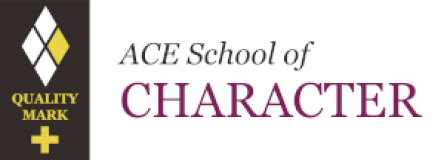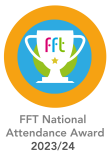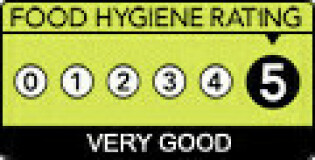Maths
Staff
Miss Taylor - Head of Department
Mr Badar - Deputy Head of Maths
Mr Chokshi - KS5 Progress and Achievement
Mr Ahmed - KS3 Progress and Achievement
Miss Konstantine - Lead Practitioner
Mr Sapal - KS5 Numeracy
Miss Atputhachelvam
Mrs Bains
Miss Begum
Mr Butt
Mr Choudhury
Mrs Cook
Mr Ekpenyong
Miss Farah
Mr Hussain
Mrs Iqbal
Miss Khalil
Miss Mamica
Mrs Matin
Mrs Mozumdar
Miss Panayides
Mrs Qureshi
Miss Rahman
Miss Salim
Miss Yasmin
Mathematics is all around us and we use it every day, checking change at the shops, deciding when to leave for the airport and timing the cooking of dinner are just a few examples.
The application of mathematics has led to the development of the objects we all take for granted such as cars, microwaves, mobile phones and the internet. At the very top end it is helping brilliant scientists understand the laws of the universe.
Mathematics opens door and leads to diverse careers at every level of understanding.
Department Overview
At Barking Abbey we aim to inspire a love of mathematics and problem solving in every student. We believe that all students can succeed in Mathematics and it is our intention to nurture students to become fluent in the basics of mathematics and reach their potential. By engendering a growth mindset and belief in themselves we will develop students with the ability to persevere and become resourceful problem solvers, developing their ability to think logically and creatively.
“A person who never made a mistake never tried anything new”, “The important thing is not to stop questioning.” Albert Einstein
Students at Barking Abbey have consistently done very well in mathematics assessments with results consistently at or above the national average.
Our excellent A Level Mathematics and A Level Further Mathematics results have helped our students move on to excellent universities including Cambridge and Oxford to continue their studies.
Curriculum Content
Key Stage 3
At Key Stage 3 we now teach in mixed ability groups in year 7, we have decided to take this approach based on research that shows is raises aspirations and results and hence the life chances of our students.
We follow a three-year Key Stage 3 curriculum which aims to give students a good grounding in the basics of mathematics to help them extend their knowledge in later years. Year 9 is a transition year where students are first introduced to GCSE style assessment questions. The course is broken down into the following components:
-
Number and Calculations - Adding, subtracting, multiplying and dividing numbers including positive and negative numbers; mathematical concepts like ‘factor’, ‘multiple’ and ‘prime numbers’; squares, square roots, cubes and cube roots; how decimal numbers and fractions relate to each other; using brackets; multiplication tables to 12 x 12; completing calculations mentally and with a calculator.
-
Algebra - How to use letter symbols; formulae; how to solve equations and inequalities; sequences of numbers and the rules that govern them; using and interpreting graphs; expressing functions in words and symbols.
-
Ratio, Proportion and rates of change - Application of number to real-life problems; comparing lengths, areas and volumes; interpreting graphs and their meanings.
-
Geometry and measures - The properties of two- and three-dimensional shapes; Pythagoras’s theorem; transforming shapes; how to use instruments and scales for measuring and how to convert between one unit and another.
-
Probability - What does fairness represent; comparing reality with theory; ways of representing outcomes of experiments.
-
Statistics - Deciding what data is needed to solve problems; carrying out experiments and tests; gathering data in different ways, e.g. tables and questionnaires; presenting data in different ways, e.g. pie charts and diagrams; evaluating and checking results; how sample size may affect results.
Within each component, students are given opportunities to develop their reasoning and problem-solving skills.
Key Stage 4
GCSE Exam Board: AQA
The GCSE course intends to develop a student’s mathematical skills further and to help prepare them for the future and A Level studies. The main curriculum topics are as for Key Stage 3 but each area is studied in much more depth to further enhance understanding and enjoyment of the subject. A mastery approach is taken which leads to problem solving questions in each topic.
Examinations
GCSE Mathematics has a Foundation tier (grades 1 – 5) and a Higher tier (grades 4 – 9). There are three examination papers each 1hour 30minutes in length;
Paper 1 - Non-Calculator,
Paper 2 - Calculator
Paper 3 - Calculator
(we recommend a Casio fx-83GT PLUS model, or similar).
Our intention is to produce students who are fluent in the basics of number and algebra so that they are comfortable with the more demanding mathematics required of them at A Level. We also want our students to be good problem solvers, ready to adapt to an unpredictable world where we are not yet certain what careers will be available to them. Students should also be data literate so that they are in a good position to analyse data critically and to ask questions if the data does not seem reliable.
Key Stage 5
A Level Exam Board: EDEXCEL
We are pleased to offer A Level Mathematics and A Level Further Mathematics at Barking Abbey.
You will study A Level Mathematics and A level Further Mathematics over two years with one set of examinations at the end of Year 13. The modules you will learn will include pure mathematics, statistics and mechanics.
A Level Mathematics is much sought after for entry to a wide variety of full time courses in Higher Education. There are many areas of employment that see Mathematics A Level as important and it is often a requirement for the qualifications related to these areas. Higher Education courses or careers that either require A Level Mathematics, include Economics, Teaching, Medicine, Psychology, Architecture, Engineering, Computing and Accountancy. If you should wish to continue your study of Mathematics after A Level, you could follow a course in Mathematics at degree level or even continue further as a postgraduate and become involved in research projects.
For further details please see the Key Stage 5 section of the website.
"Pure mathematics is, in its way, the poetry of logical ideas."
Albert Einstein







